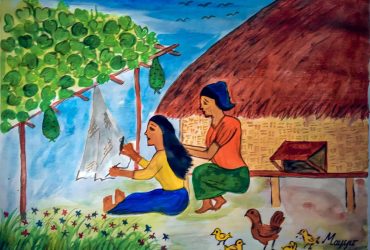OUR CULTURE
Rohingya had a distinct culture, civilization, language and literature, and a large population
However, the Rohingya people in Burma have been dehumanized by successive Burmese regimes through murder, torture, arbitrary arrest, executions, rape, and sexual assault.
Education
Rohingya were the most educated people in Arakan, but during the British colonial period and post-independence period, the education system worsened.
LEARN MOREReligion
Rohingya families are Sunni Muslims and adhere to Islamic traditions. They typically pray five times a day, fast in Ramadan, give alms, and perform Hajj
LEARN MOREFestivals
The Rohingya celebrate festivals such as Akikah, ear piercing, and circumcision, and respect Eid-ul-Fitr, Eid-ul-Adha, Lilatul Baraat, and Ashura.
LEARN MORETHE ROHINGYA
Rohingyas are a nation with a population of about 4 million people (both home and abroad). The community has a supporting history and historically settled territory, distinct culture, civilization, language and literature, and a large population. They share a culture different from the cultures of those around them. They are determined not only to preserve and to develop their culture, but also to transmit it to future generations.
Language
The Rohingya language is threatened by denial of recognition and cultural genocide by the Burmese government. So, we are raising awareness through the Rohingya Centre to revive and protect their cultural and linguistic heritage.
Musics
Rohingya culture is rich in music and song, using traditional instruments and modern instruments. ‘Howla’ is a popular song sung at wedding ceremonies. Geet are traditional and seasonal songs used by farmers, boatmen, mothers for children, and relatives. Kawali is a legacy of the Mughal period.
Food & Cuisine
Rice is the staple food for Rohingyas. The diet of Rohingya is simple—rice, fish, vegetables, chilies, and dairy. Chicken, mutton and beef are also eaten occasionally. Majority of Rohingyas eat fish and fresh vegetables. Dry fish with potatoes and salted fish are also common foods.
Occupation
Agriculture is the main occupation of the people in Arakan. Arakan is fertile and was a granary of South-East Asia. 80% of farmers are Rohingya and they are hard workers. Because of the skills, expertise, and endeavors of the Rohingya people, Arakan became a rich land.
Rohingya Culture is Unique
At the hands of successive Burmese military regimes, the Rohingya population of Arakan has experienced forcible dispossession of their population and expulsion from their homeland by means of murder, torture, arbitrary arrest and detention, executions, rape and sexual assault, military and paramilitary attacks on civilians, robbery and extortion, destruction of cultural and religious buildings and monuments, destruction of homes, confinement of civilians in camps, and purposeful starvation.
Rohingya Historian
Aman UllahFor centuries, Arakan prospered through international trade which brought in new ideas and learning to the region, and a flourishing civilization created the most cosmopolitan court in Burmese history.
SIGN UP FOR OUR UPDATES
Signing up is quick and easy! Simply visit our website www.rohingyaculture.org and enter your email address in the designated subscription box. Rest assured, we value your privacy and will only use your email to send you relevant updates.


